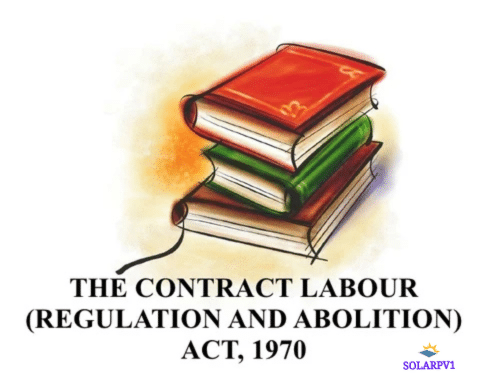INTRODUCTION CLRA Contract Labour Regulation and Abolition
The CLRA (Contract Labour (Regulation and Abolition) Act, 1970) is a significant labor law in India that regulates the employment of contract labor in certain establishments and provides for its abolition in certain circumstances. Here’s an overview of the CLRA license and its requirements in India:

Key Points about CLRA License:
- Applicability:
– The CLRA applies to establishments employing 20 or more contract workers.
– It applies to contractors who employ 20 or more workers.
- Objective:
– To regulate the employment of contract labor.
– To ensure proper working conditions and welfare measures for contract workers.
– To provide for the abolition of contract labor in certain circumstances.
- Registration of Establishments:
– Establishments covered under the Act must obtain a Certificate of Registration from the appropriate government authority (Labour Department).
- Licensing of Contractors:
– Contractors employing 20 or more workers must obtain a license from the appropriate government authority.
- Welfare Measures:
– The Act mandates certain welfare measures for contract workers, including canteens, restrooms, drinking water, first aid facilities, etc.
- Payment of Wages:
– Contractors are responsible for the payment of wages to contract workers, and the principal employer must ensure that wages are paid on time.
- Abolition of Contract Labour:
– The appropriate government can prohibit the employment of contract labor in certain processes or operations if it deems it necessary.
Process for Obtaining CLRA License:
- Application Submission:
– The principal employer or contractor must submit an application for registration or licensing to the appropriate Labour Department.
- Documentation:
– Required documents typically include proof of establishment, details of contract workers, PAN card, proof of address, and other relevant documents.
- Inspection:
– The Labour Department may conduct an inspection of the establishment to verify the details provided in the application.
- Issuance of License:
– Upon satisfactory verification, the Labour Department issues the Certificate of Registration or License.
Penalties for Non-Compliance:
- Failure to comply with the provisions of the CLRA can result in penalties, including fines and imprisonment.
- Amendments and State-Specific Variations:
- Some states in India may have specific rules and amendments to the CLRA, so it’s important to check the local regulations.
- The CLRA license is crucial for establishments and contractors employing contract labor in India. It ensures compliance with labor laws and promotes the welfare of contract workers. Establishments and contractors must adhere to the provisions of the CLRA to avoid legal repercussions and to ensure fair treatment of contract labor.
For more detailed information or specific queries, it’s advisable to consult the local Labour Department or a legal expert specializing in labor laws.
For view about our site : https://solarpv1.com/